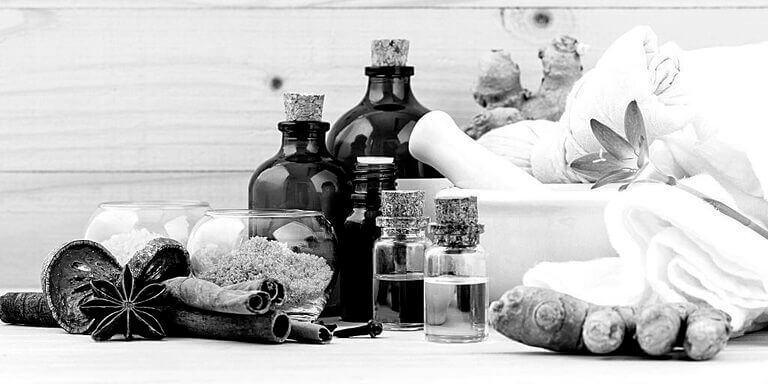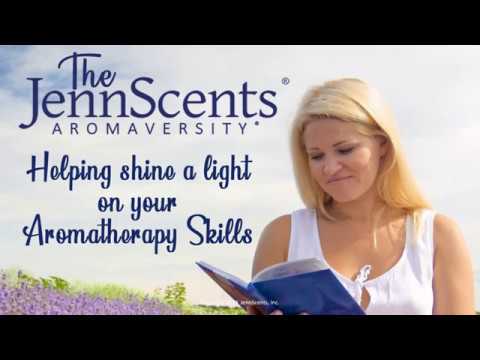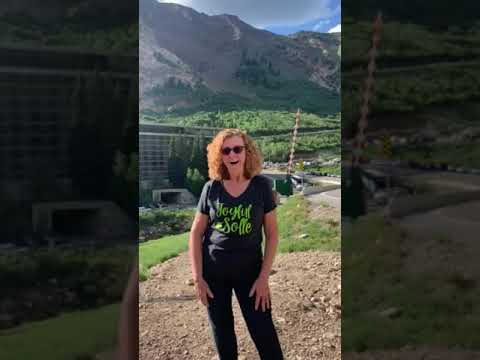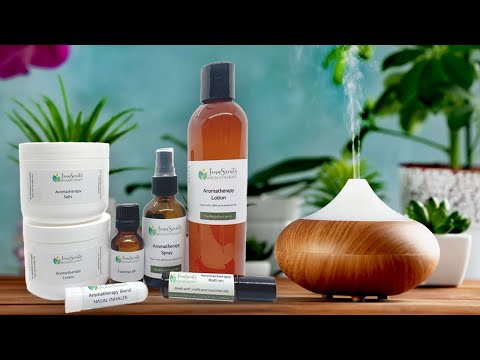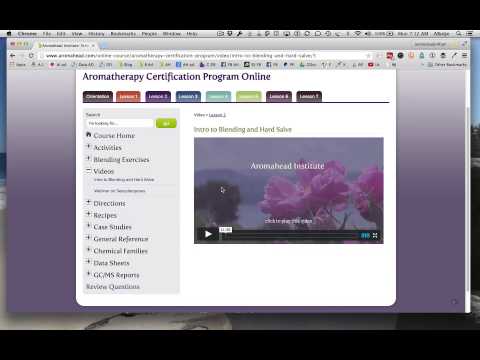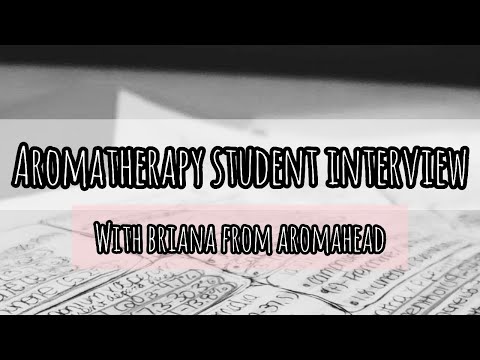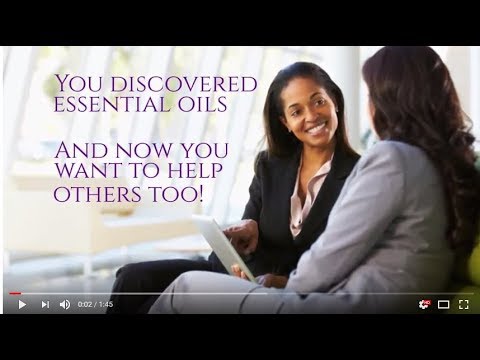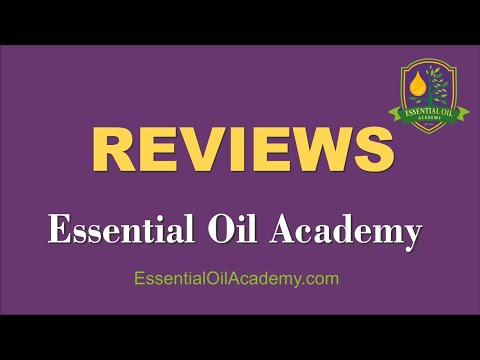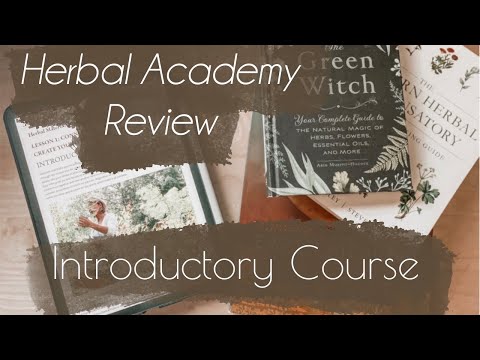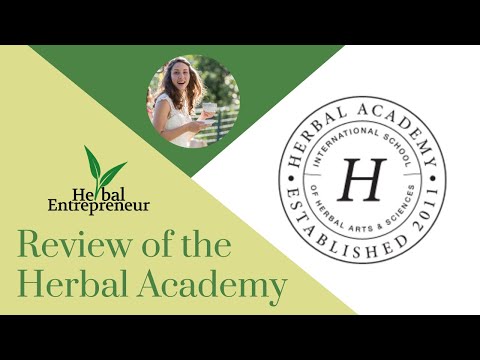Some of the links below are affiliate links, which means I may earn a commission, at no extra cost to you.
3 Best Online Aromatherapy Certification Schools
Gold Standard

Runner Up

Honourable Mention

Important: Aromatherapist Certifications Aren’t Regulated
What does this mean for you? You can receive a certification from any school and call yourself a certified aromatherapist. With aromatherapy not being a regulated industry, it’s extremely important to vet the aromatherapy school you plan on learning from to make sure they’re legitimate and have high-quality standards.
This post will help you do just that.
Who is this post for?
This post is for you if you have a budget of $800-$2000 (payment plans are available for all programs) and want an easier time making a decision on which is the best online aromatherapy certification school for you.
Basically, I’ve done the homework so you don’t have to.
If you’re looking for a cookie-cutter, low-priced online aromatherapy certification school that can be found on Udemy, this post is not for you. Otherwise, dive right in
Word of Warning (Udemy)
I understand how tempting it is to get ‘certified’ on Udemy for $15 (their top aromatherapy certificate course is only rated for 6 hours)—but if you want to be a great Aromatherapist you need great schooling. Also, you want an extensive curriculum that provides feedback on your coursework, otherwise how else are you to know how you’re doing?
If you’re serious about this, and it’s not just something else to learn, I strongly recommend you do not cut corners.
Compare 3 Of The Best Online Aromatherapy Certification Schools
Scroll right to view more columns. If you are viewing from a phone or tablet I recommend rotating into a landscape for the best viewing experience.
 |  |  |
|
| School | Jennscents Aromaversity | Aromahead Institute | Essential Oils Academy |
| Visit Website | Visit Website | Visit Website | |
| Flagship Program | Professional Aromatherapy Certification | Aromatherapy Certification | Certified Essential Oil Practitioner |
| Help you stand out from the competition | ✔ | ✔ | ✔ |
| Can Start Anytime | ✔ | ✔ | |
| Prerequisite Requirements | None | None | None |
| Length of Program | Up to 2 years | Self-paced | Self-paced |
| Total Hours | 272 | 235 | 126 |
| Hours/week | Any | Any | Any |
| Live Lectures | ✔ | ✔ | |
| 1-on-1 Support | ✔ | ✔ | ✔ |
| Digital Textbooks | ✔ | ✔ | ✔ |
| Video Content For Modules | ✔ | ✔ | ✔ |
| Number of Essential Oil Profiles | 35+ | 48 | 84 |
| Case Studies with Feedback | ✔ | ✔ | |
| Botany and taxonomy | ✔ | ✔ | |
| Phyto-Aromatherapy | ✔ | ||
| Learn to Work with Animals | ✔ | ||
| Learn Natural Cleaning Solutions | ✔ | ||
| Learn Client Program Design | ✔ | ✔ | ✔ |
| Lifetime Access To Resources | ✔ | ✔ | ✔ |
| Learn How To Start Your Own Aromatherapist Practice | ✔ | ✔ | |
| Business Marketing | ✔ | ✔ | |
| Private Group for Students | ✔ | ✔ | ✔ |
| Investment (if paid in full) | $1947 | $1995 | $899 |
| Payment Plan | $233 x 8 | $895 down, then $240 x 5 | $325 x 3 or $99 x 10 |
| Read Review | Read Review | Read Review | |
| Visit Website | Visit Website | Visit Website |
|---|
#1 Online Aromatherapy Certification School

*Jennscents offers 2 programs that teach you to work with others in a professional manner, which is covered here. They offer a short program that is for personal use only, which is not covered here.
More Course Info:
Access To Payment Plans:
(I discovered you cannot access payment plans through the above links)
Introduction to Jennscents from Owner Jennifer Pressimone
More Info
Jennscents Aromaversity Review
More Course Info:
Access To Payment Plans:
(I discovered you cannot access payment plans through the above links)
#2 Online Aromatherapy Certification School

School: Aromahead Institute
Program: Aromatherapy Certification Program
Cost (if paid in full): $1995
Payment Plans: $895 down, then $240 x 5
Intro to Aromahead Institute With Co-Founder, Andrea Butje
Aromahead Institute Review
Aromatherapy Certification Program
Orientation
- Essential oil safety guidelines
- Blending + dilution techniques
- Introduction to essential oil chemistry
- Labeling guidelines and FDA-friendly language
- Aromatherapy scope of practice
- 48 printable essential oil datasheets (with facts about each oil, therapeutic + clinical uses, safety considerations, and scientific references)
Lesson 1
- How essential oils are absorbed
- All about olfaction (your sense of smell)
- Safe use of oils on the skin
- How to read a GC/MS report (and how they can help you choose oils in each situation)
- Latin names & chemical families (and why they’re important)
- How to create inhalers and steam blends
- Physical & emotional properties of essential oils
Lesson 2
- A brief history of Aromatherapy
- Methods for extracting essential oils
- All about carrier oils & butters
- How to make healing salves
- How oils can help heal injury and reduce inflammation
- How oils can reduce stress and ease pain
- How understanding specific chemical families can improve your blending
Lesson 3
- Chemical components & medicinal properties of essential oils
- Potential drug interactions (and how to avoid them!)
- How to price oils & products for resale
- Monoterpenol & sesquiterpenol chemical families and their distinctive qualities
Lesson 4
- Hydrosols and how to use them
- The best essential oils for nourishing skin
- Blends for reducing infections, pain, and inflammation
- How to make luscious body butters
- The essential oils in the phenol, aldehyde, and ketone families
Lesson 5
- The art of blending by aroma
- Natural remedies for respiratory issues
- Powerful oils from the Ester, Oxide, and Ether families & their safety considerations
- Hand soaps, salt scrubs, and inhalers
- How to format GC/MS reports and create your own essential oil datasheets
Lesson 6
- Everything you need to know about using essential oils with pregnant women
- Advanced blending techniques
- How to make the best oil substitutions for any recipe
- Lip balms, room sprays & linen sprays
- Natural cleaning products
Lesson 7
- Build your vision for how you’ll use essential oils in your life (and possibly even in your career!)
- Complete remaining requirements to become a Certified Aromatherapist with hands-on instructor guidance (final exam, case studies, research paper, anatomy & physiology course)
#3 Online Aromatherapy Certification School

School: Essential Oil Academy
Program: Certified Essential Oil Practitioner
Cost: $899
Payment Plans: $325 x 3 or $99 x 10
Introduction to Essential Oil Academy
Essential Oil Academy Review
Certified Essential Oil Practitioner
Module 1 – Introduction to Essential Oils
Module 1 gives you the “big picture” on how essential oils can dramatically increase wellness and promote healthy function throughout the entire human body.
You’ll discover important information about essential oils, including:
- Origin – We know that essential oils didn’t just turn up in little bottles! Discover how essential oils were developed over the course of thousands of years.
- Benefits – Learn how essential oils relax, soothe and help the body to heal itself, all due to the chemical biocompatibility that essential oils share with the human body.
- Function – It’s great when something works, but it’s even better when you understand how and why something works, right? Here, we’ll cover the different applications of oils and how they affect the body’s systems.
- Purity and Concentration – Essential oils are not simply fragrant oils. Discover how essences are extracted from plants in order to obtain pure oils that are therapeutic and promote healing.
- A Brief History – What do the ancient Egyptians, Chinese, and Greeks all have in common with you and me? Essential oils! Here you’ll learn how various cultures utilized these powerful substances.
- Modern Use – Finally, we discuss the advances made in the field of aromatherapy after the 17th century. We’ll also look at influential writers, whose literature continues to impact the study and application of essential oils today.
Module 2 – How to Use Essential Oils: Basic Principles
Essential oils are very easy to use. They’re also incredibly potent and can have dramatic effects throughout your entire body. When used properly, they usher in amazing results. But if we’re not careful with these powerful substances, we can accidentally cause harm and detrimental results.
If you’re new to aromatherapy, and not sure what to do, don’t worry. This course gives you the necessary tools to use essential oils confidently, safely, and effectively.
Here’s what you’ll learn in Module 2:
- Your Body and Essential Oils – How does the body absorb essential oils? Discover the three main ways here.
- How to Apply and Determine Dosage – Learn all about carrier oils and why they’re important. You’ll also learn specific dosage recommendations based on the individual’s age. Finally, discover how to apply and administer essential oils in several different ways.
- How to Store Essential Oils Properly – You don’t need a fancy apothecary to store your oils. Instead, just follow the simple guidelines we introduce here.
- Chemical Degradation – Discover how basic, natural elements, like sunlight, heat and oxygen can gradually (and negatively) alter the quality of your essential oils.
- Using Essential Oils Carefully and With Caution – Some oils should never be used. Others should be used with caution. There are also specific oils that should be avoided during pregnancy, and for people with certain health conditions.
Module 3 – Single Oils, Oil Blends & Blending
So far, we’ve covered the very basics of essential oils. We’ve gone back thousands of years to explore their history, and we’ve learned how essential oils interact with your body today. We know why it’s important to use caution and care when applying, dosing, and how to store these powerful substances.
And while it’s important to know the best way to keep your essential oil collection in the cupboard, isn’t it time we dive a little deeper into the fragrant world of aromatherapy?
Every oil has its own therapeutic properties, its own signature scent, and its own story, so to speak. And this is where the fun begins! Imagine that you’re attending an exciting networking event. Every individual brings their own talents and gifts to the table. The same goes for essential oils. Each one provides something unique, and your personal relationship with essential oils begins right here, in Module 3.
Maybe you’re interested in making perfumes, or perhaps you’re aiming to use essential oils for therapeutic purposes. You’ll learn how to do both in this module.
Here are the lessons we’ll cover:
- How to Organize Your Single Oils – How you organize your essential oils is entirely up to you. It might depend on what you use your essential oils for. For example, you might organize them differently if you make perfumes instead of therapeutic blends. You’ll learn several organizational tips that make sense for your practice.
- Therapeutic Blending – Here, you’ll learn how to make the perfect oil blends based on the specific needs of the individual. We’ll discuss the proper supplies, common measurements, and suggested combinations.
- Perfume Blending – Become your own parfumeur and create essential oil blends with a deeper understanding of the three aromatic notes.
- Developing Your Own Blending Style – We’ll cover five different blending styles. This enables you to develop a style that aligns with your creative and healing work, and will also provide you with exemplary teachers to follow.
Module 4 – Quality and Purity
You’ve made the exciting decision to become an essential oil practitioner. You’ve got the basics under your belt. Now, it’s time to start building your very own collection of essential oils.
Perhaps you’ve started shopping around and see that there are many different brands and prices to choose from. And when you have the choice between a lavender essential oil that costs ten dollars and another oil for twenty dollars, you might want to reach for the cheaper bottle first. This module will help you become a better shopper when it comes to essential oils.
Not all essential oils are made equal, and Module 4 teaches you how to purchase oils based on two important factors: quality and purity.
Here’s what we’ll cover in “Quality and Purity”:
- Why Quality and Purity Are So Important – So many steps have to happen for an essential oil to go from the original plant to your shelf. We’ll discuss what will increase or decrease an oil’s quality, as well as its purity.
- Synthetic and Adulterated Oils – Because several other industries utilize essential oils, many productions have become standardized for consistency. We’ll cover this, and why synthetic ingredients can be highly detrimental in your essential oil practice.
- What Essential Oils Consist Of – Scientists can now isolate the beneficial parts of an essential oil and mix it with lower quality ingredients. You’ll learn why it’s best to keep the essential oil pure with its original, beneficial properties.
- Discerning Whether an Oil is Pure and High Quality – There are standards and labeling used in the essential oil industry, but sometimes it’s difficult to trust even these. Module 4 gives you insider tips to help you look past the label and choose the best oil possible.
Module 5 – Holistic Approach to Wellness: Understanding Disease and the Effects Essential Oils Have on Our Well-Being
As an essential oil practitioner, you’re interested in alleviating suffering and supporting health and wellness. You’re probably eager to help your clients find relief from a wide range of issues, such as arthritis, influenza, allergies, and trauma, just to name a few. To therapeutically treat disease with aromatherapy, you must first adjust your understanding of the disease. Instead of focusing on simply removing disease from the body, you will learn to focus on the root cause of the issue, and how it’s affecting the entire body.
In Module 5, “Holistic Approach to Wellness”, we’re going to expand our understanding of the disease, and how essential oils are an excellent modality for supporting health goals.
Here’s what we’ll cover:
- Health, Pathology and Disease – We will examine these terms and redefine them. This will help use essential oils far more effectively.
- Common Types of Disease – This is an introduction to the common diseases you encounter daily, both in and out of your aromatherapy practice.
- Allopathic versus Holistic Approaches – We will review these two modalities, as well as how they impact our approach to healing.
- Complementary Practitioners – An essential oil practitioner should be a complementary practitioner. Here, you will learn how aromatherapy embraces holistic principles, and can work alongside allopathic treatments.
- The Immune System and Essential Oils – To alleviate suffering and return to a state of wellness and ease, it’s crucial to have a strong and robust immunity. Here, you will learn the specific essential oils to strengthen the immune system.
- Physiological Effects of Scent – To close Module 5, we discuss how essential oils – especially when inhaled – offer powerful healing properties. Research studies are provided for your consideration.
By understanding what disease and health truly are, you can administer essential oils that positively influence the body’s response to disease.
Module 6 – Basic Physiology and Essential Oils
You know that essential oils are powerful and offer beneficial supportive properties. That’s why you’ve decided to become an essential oil practitioner.
In Module 6, you will dive deep and discover how essential oils can be so potent within the human body. It’s safe to say that it’s the most scientific module in the Essential Oils Practitioner Course, and the information you’re about to learn will truly fill you with awe and wonder.
Module 6 will cover these topics:
- What Makes Essential Oils Work Physiologically – Because of their unique structure and size, essential oils are capable of working on a physiological level. You’ll learn more about their size and structure, and how that allows them to work in specific areas of the body.
- Basic Introduction to the Limbic System – It’s impossible to discuss the physiological activity of essential oils without considering the limbic system. This group of brain structures is responsible for many bodily functions, and a foundational understanding of the limbic system allows you to understand how essential oils work.
- How Essential Oils Are Processed in the Olfactory System – How do essential oils make their way to the limbic system? And what happens once they get there? We’ll cover this process in greater detail here.
- The Special Effect Essential Oils Have on the Emotional Brain – Essential oils can instigate positive change within the physical body, but due to their unique nature and their work in the limbic system, they are especially powerful when it comes to supporting cases with emotional trauma, as well as suppressed memory and emotions.
- We know essential oils can work wonders. Now, it’s time to discover the amazing scientific information that explains how these beneficial and supportive effects occur.
Module 7 – Teaching an Essential Oils Class
One of the best parts about becoming an essential oil practitioner is being able to connect with other people. It’s how you grow your business and create a community that supports the world of essential oils. Teaching your own essential oils class is an excellent way to share this exciting information with others, while simultaneously building your own team and clientele.
Teaching can be fun, but it might still be intimidating in the beginning. So, to offset any worries you might have about teaching an essential oils class, this
module will walk you through each and every step along the way. It’s important to remember that there are many large essential oil companies, including multi-level companies, that already have methods, strategies, and policies in place. The information in Module 7 is meant to supplement, and not replace, these systems.
Here’s what we’ll cover in Module 7:
- How to Create Your Own Class – What do you want to teach and why? By answering these, and several other questions you’ll begin to discern and identify your ideal class. Then, you’ll learn how to design it.
- Class Preparation – So many details go into an effective and successful class. We’ll review all of them, from lesson planning, rehearsing, supplies and logistics.
- Teaching – Preparation is important, and so is the actual class you teach. You’ll learn two important tips to help you begin and end your class like a pro.
- Follow-Up – The best teachers are the ones who review their classes and identify both their successes and also what they need to improve. Here, you’ll cover the different elements you need to assess to make your next class even better.
Module 8 – How to Start an Essential Oils Business
Welcome to the penultimate module in your Essential Oils Practitioner’s Course! You’ve come so far and covered everything from the very basics about essential oils to some rather scientific discussions about physiology and the various systems within the human body.
Now, it’s time for you to think about starting your own essential oils business. And that’s where Module 8 comes in. It can be overwhelming to start any business, but Module 8 gives you the tools and confidence you need to launch your essential oils business.
Here’s what we’ll cover:
- Educate Yourself – You have learned a lot in this course, but there’s always more to learn. And continued study and research is one of the first steps to starting your business.
- Navigating Logistics – You may not be as passionate about logistics as you are about essential oils, but backend details can make or break a successful business. We’ll cover inventory, budget, bank accounts and more.
- The FDA and Essential Oils – As an essential oils practitioner, you need to be informed and up to date with the rules and regulations set by the FDA. You’ll learn how here.
- Branding Your Business – Because essential oils have become increasingly popular, it’s crucial that you develop a brand that represents you and attracts customers. We’ll discuss logos, names, websites and more.
- Marketing and Advertising – Help people find you and your business by taking time to broadcast your business, as well as the products and services you offer. The biggest goals can be broken down into small, do-able steps, and Module 8 lays the perfect foundation for your career as an essential oil business owner.
Module 9 – Perfecting Your Essential Oils Practice: Use of Coaching Skills, Client Management, and Advertising Strategies
Congratulations! You’ve made it to the final module in your Essential Oils Practitioner Course. You should be very proud of how far you’ve come and how much you’ve learned along the way.
It’s time to think of yourself as an essential oils practitioner with bonus coaching communication skills. Your new understanding of coaching skills will inspire you to partner with and support your clients as they create new, positive changes in their lives. To ensure that you have the knowledge to create a successful, sustainable practice, we’ll also discuss the best ways to manage your clients and advertise your essential oils practice.
Here’s what Module 9 will cover:
- Applying coaching skills to your client consultations – Communication is key and coaching skills will provide you an optimum way to serve clients by partnering with them in their wellness goals. You’ll discover how to practice this type of coaching, especially when it comes to your essential oils practice.
- How to Empower Your Clients for their Best Results – By following these guidelines, you’ll use your expertise and knowledge to empower your clients to make positive changes in their lives.
- The Ins and Outs of Consultation Sessions – Simple strategies will help you and your client stay on track and optimize each session. We’ll also cover logistics, like pricing and scheduling.
- Client Management – To have an efficient essential oils business, it’s important to have an organized and automated system. Here, you’ll discover helpful resources that are designed for practitioners just like you
- American Association of Drugless Practitioners – Successful completion of this certification course allows the graduate to become eligible for continuing education credits and additional board certification
Essential Oils Academy FAQ
HOW DOES THIS COURSE COMPARE WITH AROMATHERAPY TRAINING?
Great question! Because we are sharing essential oils, the same type of foundational knowledge is needed. But we are not training you to become an aromatherapist, rather a skilled expert at offering knowledgeable consultations, selling, teaching, creating products if you wish, both therapeutic and perfumery … and doing so with greater empowerment and confidence than ever before.
Frequently Asked Questions
How do I get certified in aromatherapy?
Study with an accredited aromatherapy school such as Jennscents University.
Is there a certification for essential oils?
Yes, there is a school for essential oils, it’s called Essential Oil Academy and they provide certification as an Essential Oil Practitioner.
How long does it take to become a clinical aromatherapist?
It can take up to 3 years to become a clinical aromatherapist by according to the Clinical Aromatherapy Certification at Jennscents University.
What can you do with an aromatherapy certification?
There are many benefits to getting an aromatherapy certification. The main one is that it allows you to open your own business. As a certified aromatherapist, you can make money by helping people to find relief from everyday stress and anxiety. You can also teach others how to do things like give a massage or make a facial. You can also offer aromatherapy services through your business, such as giving a massage, giving facials, giving a manicure/pedicure, or giving a make-up application. In addition, you can offer workshops and educational classes on everything from aromatherapy to make-up application. It is also important to remember that there are many benefits to getting an aromatherapy certification, so it is worth it to get one.
Time To Make A Decision
I sincerely hope that I have provided enough information here to assist you in making your decision on choosing 1 of the 3 highest quality Aromatherapy Certification schools available online.
If you have any questions or feel there are gaps in information, and you would like me to add more information, please let me know in the comment section below, I will gladly try to help you out.
Detailed reviews of other areas of certification:
Online Life Coach Certification
Online Health Coach Certifications
Holistic Nutrition Certifications
Online Meditation Teacher Certifications
Have questions regarding any of these online aromatherapy certification schools?
If you have any questions regarding any of the information I have presented here regarding any of these online herbalist certification schools feel free to contact me 🙂

